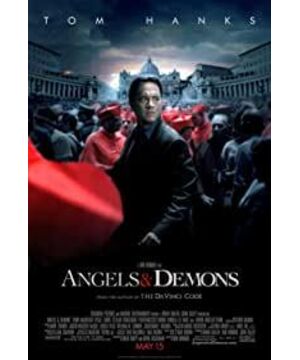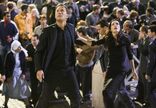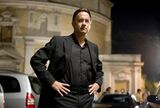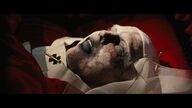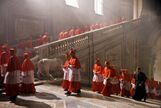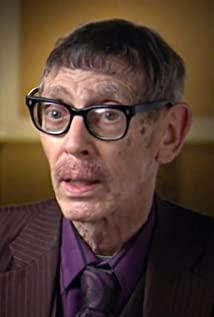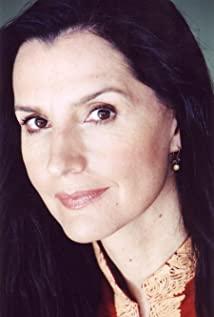if you like this movie and feel that it is a masterpiece, then please also click that place.
But if you like this movie and have never seen the original...
then you are blessed, but please click on the upper right corner. We can’t do anything to destroy the gods in the hearts of others.
Thank you for your cooperation.
Okay, surviving comrades, let's watch me start complaining.
First of all-everything is possible.
At one point, I couldn’t understand why the director of this film showed some details that should have been left for the audience to discover. Don’t tell me that you didn’t find that the deceased, who was both a priest and a scientist, was sitting in front of the camera. At the time, he was conscientiously wearing the vestments that listened to the confession. This is like the criminal revealing his address when he called the radio to taunt the police after the murder. In his blind self-confidence, it greatly weakened the entertainment that could have existed and was left to the audience to develop on their own.
In the original book, Victoria, who was adopted by him as his adopted daughter, became his colleague at this time.
From the very beginning, the whole film fell into a situation full of taboos and abstinence, suggesting ambiguous relationships, and then mixed into the red and white machine mode-in the European Nuclear Center, known as "absolute defense", A drop of antimatter that could destroy the world was easily taken away by the cleaner, Uncle Mario, and the priest was killed easily.
The goal is to carefully remove his eyeballs and unlock the retina lock at hand.
If Mario can steal a can of antimatter from the European Nuclear Center, then he will not go to the European Nuclear Center, but the Normat market.
[By the way, I don’t understand how the killer opened the door first, then killed the priest, then dug out the priest’s eyes and ran outside, opened the door again, and entered twice. 】
【So the opening chapter that needs to repeat the key to open the door is not Mario but the Tower of Heroes? 】
Victoria's appearance in the novel is amazing. The beauty in khaki shorts and a white shirt appears in front of the male protagonist with the breath of the sea. The first impression left is her curly long black hair and red and swollen eyes from crying all the time.
There is also surprising anger and aggressiveness.
If Robert Langdon is portrayed by the novelist as a rather masculine and elegant temperament, but a slightly shy image that is more popular with women, then Victoria’s impulse and her unruly ambition have laid the foundation for these two more fully. The protagonist with complementary personalities is about to collide with sparks in the following story.
But all I saw in the movie was an OL who needed a long vacation to relieve dark circles, and her wildness was so low that she couldn't conceal Dr. Robert Langdon's flashy neuroticism, who also distorted the appearance of her personality.
Robert Langdon is a semiotic scholar. He is not a scientist. Although he has repeatedly claimed that he has nothing to do with faith, the reason for being a semiotics scholar should be more profound than ordinary people's understanding of how faith is passed on and from the common world. Holy. In Dan Brown’s text, you will understand that Professor Langdon is one of the bridges between the past and the present. He has all the heavy history all night, and as a modern man, he longs to be hidden in the fog of history. Various answers. This made him maintain absolute and equal respect for the other side no matter which side he turned to.
So, if you have this kind of impression of the original work, then when you see the one walking into the cloister of St. Peter’s Square, while commenting on the “castration of art” era, with a smile on your face. When Yankee, you might yell like me: "Who are you?" Who are you,
sir?
Sir, can you stop smiling?
Sir, be serious.
Sir, have you eaten yet?
Sir, go home and eat if you haven't eaten.
We have every reason to believe that Dr. Langdon in the film came here for a free day trip to the Vatican. The subsequent incidents further illustrate this point. He began to show the dark side of the Holy See that can be found on the Internet to the Swiss Legion, which has been holding the sanctuary for a hundred years, and then complained to the person in charge that he wanted to go to the Vatican Library. The request was repeatedly returned. This Dr. Langdon, like all the uninvited Yankees, put himself at a solemn height from the beginning, accurately interpreting what is a neurotic technical house, and making the whole world bored.
If there was no scene where the Holy See included him as a "disgusting party," then I could still regard Langdon's move as acting like a baby. Well, I don’t remember this chapter in the novel, because in the process of reading, Langdon, who came to the sanctuary at the beginning, maintained his demeanor as a scholar. He did not complain about the demands of the Swiss Legion, but because he knew him well. Explain the excuse for them by dogma.
The Swiss Legion in the film assigned Langdon, who had published certain publications, to the enemy-so the Swiss Legion is also a place where arrogant people gather.
Okay, now take a look back, let us go back to the original point and look at the "KEY" that has been removed from the movie and maintained the entire story from beginning to end in the novel.
All successful novels will have a center surrounded by many branches, sometimes we call it "the hole card." Under normal circumstances, the author will keep the hole cards in place before revealing them at the end, in order to give the reader a clear ending. But I have to say that Dan Brown, who is good at creating duality, played the card quietly at the beginning of everything, and quietly announced the theme in the end.
Appearing on a similar theme and repeating it over and over again. This method is usually called Canon style. If you don’t realize it at the beginning, it will reappear at the next corner. Everything is like a grand and root-related musical style— —Scientist priest and Victoria, Pope and Pope servants, Church servants and guards, Vatican and Swiss Legion, Church and the world... Gods and people.
And its theme is the "father and son" which means "inheritance" in the faith.
This kind of intimate and gentle relationship has been spreading throughout the plot of the novel, running through evil and shady, killing and blood, just like a salvation before the end of the world, repeatedly trying to explain the most tender side of human nature. . As the "father", with persuasion and guidance as several tasks, it occupies the absolute height of the spiritual realm. In the original work, the author even portrayed the bishop as the image of the father several times. They are wise and gentle, and softly call for comfort to ordinary people who are in pain and eagerness, calling them "children", and their faith and the church are on the verge of collapse. When he was on the verge of being on the verge, he kept the elder’s peace with firm belief, and hid his inner pain again and again between the mortal and the sacred. As children, whether they always regard that image as the goal or deviate from the line guided by the father, their hearts are filled with deep feelings for the father.
When the story was halfway through, Victoria suggested that the pope's servant go to inspect the body of the previous pope. The young priest finally agreed to this rebellious request to the church. He briefly asked the soldiers of the Swiss Legion to follow himself to complete this task that might be blasphemous. A group of people hurriedly rushed to the papal coffin to stop. Before the opening inspection, the Pope’s servant had something to say-he stood by the pope’s sarcophagus and said, gentlemen, even if the time is urgent, please let me do it first. prayer.
The plot that followed was embarrassing. The Pope’s servant’s brief prayer was sacred and helpless. Those words were soaked in sadness and exhaustion. And Victoria, beside him, also shed tears because he missed his slain father. This emotion was moved, so that before the opening of the museum, the audience's emotions had been reached to the extreme, and found a catharsis for the mixed grief and anger as the result of the Pope's subsequent poisoning.
Turning back to the movie version of the storyline, but because the "father-son" connection was discarded from the beginning, it happened to eliminate the most touching part, and cut all the details away, leaving only the conspiracy part of singing and dancing to kill people and make money. .
Maybe this is the director's aesthetic, like to show the dark side?
Until now, I have never been able to explain why this film would rather spend a lot of film and lens changes to imply to the audience the conflicts between the Swiss Army and the Italian police, the disagreement between the superiors and the subordinates, the chaotic management, and the disorganized management. Will use a short and simple narrative to express to the audience the good relationship between people who are not related by blood. As a result, people have no way of knowing why Victoria was sentimental when praying in the Pope’s servant, let alone understand that the Pope’s servant, as an adult man, repeatedly kept tears in his eyes when referring to the dead pope, and the reason was not all because of sitting in front of each other. The person in the position of the Pope pays respects and misses, but is suffering from complex pains in his heart.
You can expand the conspiracy to adult people who are suspected, but this is not good-looking, if it is the case from beginning to end. Even if it is "Murder on the Eastern Train", it will at least give the audience a sense of "excusable" relief when the truth is revealed at the end. The director and screenwriter of the film "Angels and Demons" seems to be too limited in shaping the character of the Pope’s servant. He deliberately placed him in a vortex full of struggle and evil, which increased his difficulties and weakened his fortitude. .
Think about it, when the door to the secret meeting was closed, the cardinal was full of mockery and contempt, and stood opposite him, holding back tears, and being isolated from a power conspiracy. Depending on the plot.
Both the good and the evil are reversed at this moment and are rooted in the hearts of the people.
If it conforms to the plot that the director deliberately arranged, then this movie should be called "BLEACH", because he too wants to cleanse the Pope's servants, and the mood is obvious to the point where it can already smash Lake Toya.
I have no intention of commenting on the acting skills of the actor who plays the Pope’s servant, or even mention this item, I will give him a very high score. However, the director’s awkward modification of the script made this sad and pitiful image of the "fallen angel" that was supposed to maintain the purity of the faith and did not hesitate to stain his hands with the blood of his closest relatives. Desire for the devil".
To put it bluntly, this film blinded the actors so good acting skills, and completely reduced Langdon to a supporting role who was instructed to run errands like a club in the old city of Rome.
It is not too much to portray the protagonist as neurotic, but the plot forces a group of actors to act neurotic as neurotic, so the director should drag it out to feed the dog.
Maybe the director thinks that the way to pull down the bookshelves and make them appear as dominoes is a bridge that has already been in "The Mummy", so when Dr. Langdon was trapped in the Vatican Library, he died of lack of oxygen. When it was in trouble, he could not only knock down a bookshelf, but beside him was a blond young man who followed him from breathing to groaning.
By the way, this blond young man with obvious Aryan characteristics speaks frankly and frankly like a junior high school student whose hormones are agitated, and is sick in his second year. He fully demonstrated to the world how a good fanatic is innocent in heart, and holds a hostile attitude towards the opposite of this world.
If you didn't understand it wrong, the director wanted to imply that we were like this for a long, long time ago, the brave of the Knights of the Cross Rose. After that, he went to Dragon Quest to find the Holy Grail. After that, he never came back.
Because he established the pivot country with Honda Chrysanthemum and Feliciano.
If you want to play with metaphors and directivity, this film has already skewed the way it should be.
Dr. Langdon is also sicker in this episode than in the previous episode. Although in theory, "Heaven" should be the prequel to "Da", he looks much older than the previous episode, isn't it... In this movie, he basically no longer concealed his habit of showing Moori Kogoro's smile when he discovered the truth in chaotic situations.
Even if he faced the looming destruction of the entire Vatican, or just watched a bishop being killed, he even crawled out of the Teenage Mutant Ninja Turtles' house and escaped the killer.
Every time Dr. Langdon, who kept smiling, was running, everyone could see A-Gump from him...Although A-Gump didn't smile.
What is gratifying is that it is not a journalist who works with him at all costs for the gossip, but a handsome Roman policeman who ignores the bureaucracy.
The reality is very cruel-you are not six serious crimes, handsome chess, but also cannon fodder.
If you continue to complain, the questions that follow will have tens of thousands of words.
And I didn't collect money for this film review, it's worthless.
So the topic of Robert Forrest stopped here, let's talk about the director.
The biggest failure of this play is that the director underestimated the audience’s IQ and the scope of reading. I can guarantee that at least half of the audiences who wish to watch this film are readers of the original novel, or have already learned from other readers. People who have learned about the novel at the level. However, the director tried to overthrow the precise emotional line set in the original work, but did not make any innovative contributions to make up for this vacancy. With wishful thinking, he presented the dark side of a large group that he tried to show, and pressed the well-known treasure to the end. .
In this world where everyone knows that the person who seems the least motivated to kill is the murderer, you shit!
The action of the Pope’s servant rushing to the secret meeting is equivalent to passing the customs to the Pope’s Hall with Lake Toya. The church law that has been passed down for thousands of years is useless. At this moment, the Swiss Legion is useless. At this moment is equivalent to fictitious. Afterwards, the super-expansion of the plot has reached the level of defying the sky. The Pope’s servant came, and his extremely weakened right was blown by his small universe into a super storm that could stop the secret meeting. In front of many cardinals, the Pope’s servant It began with a long, seemingly passionate argument on science and theology that shouldn't be published here and now.
The film's impassioned handling of this paragraph in the use of shots and rhythm, it seems that the screenwriter and director are very satisfied with this part, but they may not even realize that this move completely destroyed the base tone of the whole story.
In the original work, the Holy See was supposed to be milky white like marble, hard but fragile. It was disintegrated bit by bit by external forces, revealing what it has endured in the long history, and it is bound to increase. To live through the pain of the outside world. He is a dying old man. Although he has been in power for a while and has committed horrible evils, the Holy See is already old at this moment. In addition to his twilight decay, what time has given him has also stripped him of his eagerness. Of anger and stubbornness. At this moment, the Holy See is just an old man wearing a white mink cotton robe, heavy gold ornaments and precepts. He knows he is going to die, so he wants to stop the young and strong science, and share his knowledge and knowledge. Consider telling each other one by one-listen, there are always some areas you can't touch, because that is not only the bottom line of the world, but also the bottom line of morality.
In the original novel, priests and bishops have used the words of priests and bishops to exhort this argument in a gentle way. Whether you agree with it or not, when you see this side of the Holy See, you are always touched by "humanity." In this film, the Holy See becomes a central park with extremely concentrated power and extremely expanded discourse power. The cardinal, holding a cigarette and a ring in his hand, stood gesticulating in St. Peter's Square. They moved quickly and had sharp eyes, gathering together like a group of vultures and whispering. Obviously, the position of the pope has become a commodity to be sold, and the bishop’s attendants are bold enough to speak up. The bishop who presided over the meeting in response to the request of God also participates in this competition and incorporates the position of the pope. In the bag.
Regardless of whether the audience has faith or not, one thing I’m sure of is that when you see such a cardinal, you will receive the director’s intention-hey, look at these old foxes. The Holy See is a puppet controlled by this group of people. Quickly show them your middle finger and spit!
Recalling the director’s previous remarks that the things he photographed might make the church unpleasant, I have reason to believe that he did not avoid all the taboos of the Holy See at all, but suffocated his energy from the beginning, trying to arouse the Holy See. The rebound. The film succeeded in making people who watched the film hate the church to varying degrees. By the way, if the director is willing to come to China, he will be a good author of Gongdou Opera, and he will write clearly.
The Pope’s servant found that the scenes he exposed were naturally cut off because of no previous experience. The wonderful passages that knew his life secrets became in the movie he had to face a group of aggressive red old guys-they were like bad Christmas. The old gangsters gathered together, staring at the Pope's servant with the eyes of the reindeer, and then came around. Then there appeared the fanatics of the Swiss Legion, who persecuted him and kept pushing him to the entrance to the Vatican Hill.
If you follow my text and see here, then I would like to invite you to read this paragraph of the original.
In the novel, the cardinal, who is witnessing to the former pope before the gods, wants to reveal the secret that he has sealed for most of his life. He sighed, and tears as he spoke. He must give up his vow to maintain the holiness of the Pope. Just as he had always worried, that past event finally triggered this tragedy that almost overthrew his country. In the previous chapter, the bishop has shown that he is not a selfish person. He cried only because he could not accept that evil would originate from within the Holy See, and because of the fact that he verified that he would always be favored by the divine father’s love. The leaning child pushes into the hell that he himself opened.
Carlo, you have plunged the entire church into a miserable situation-this is a painful speech, but there is still no bitter bite, only the grieving grievances of the elders and the juniors when they make an irreversible situation.
But no, there is nothing in these moving parts of the movie, and some are just deliberately magnified malice.
Without being moved, there is no need for salvation-I have to say that there has always been an obvious inciting atmosphere throughout the film. The noisy group fighting crowd and the power-suppressed focus of the media attention all over the world are isolated in the center. It exudes an abominable atmosphere, greedy and ugly.
On the other side, until the Pope’s servant immolated himself, he was a sacred martyr. The culprit who killed several people before buying the murderer just disappeared, and the audience couldn't experience the pleasure of retribution. On the contrary, there will be some people who still don't know why he is a hero who opposes the persecution of power to death.
The Holy See, as the largest spiritual leader on the planet, accepts the unkind provocation of this film at this moment.
This kind of sharp accusation atmosphere was not in the original book. Even at the end of the story, the newly appointed pope merely asked Dr. Langdon to follow his heart to decide whether to make the truth public.
At the end of the film, the bishop, who was branded with shame by the enemy, put on the pope’s vestments with an unconcealed expression of joy, and stepped on the miracle created by the bones of the pope’s body, ascended to the Holy See, to St. Peter The people in the square opened their arms of hypocrisy.
I don’t know what the director is trying to express. I only know that it reminds me of some distorted facts in Alfred’s media, the false news report on April 1st, and the video of the entertainment show while saying "Look It's not pleasing to the eye because it's alone", the Al family who inserted the enemy's logo on Australia.
Maybe he just saw the Holy See not pleasing to the eye.
Maybe he will also look at the European Union, NATO, G8, UNFCCC, Far East, Wang Yao and so on. We all know that it's personal power, and we can't control it, let alone control it.
When the party with the right to speak wants to intensify the problem and provoke the topic, if you follow it seriously, you lose.
But when a novel you like is changed into a blockbuster full of personal consciousness, you will find it hard not to take it seriously.
If the original is a plate of PASTA with cheese and spices, then the director and screenwriter of the film passed his self-righteous interpretation, making the story completely compatible with the brawny man driving pork on the interstate highway in a truck. Go for minced meat burgers.
This is really saving money, because you will not want to touch the related things for a long time after eating it, and it will be nauseous to look at it.
The director is the mother of the movie, so this movie that ruins the original is really nasty by the fuck.
View more about Angels & Demons reviews


